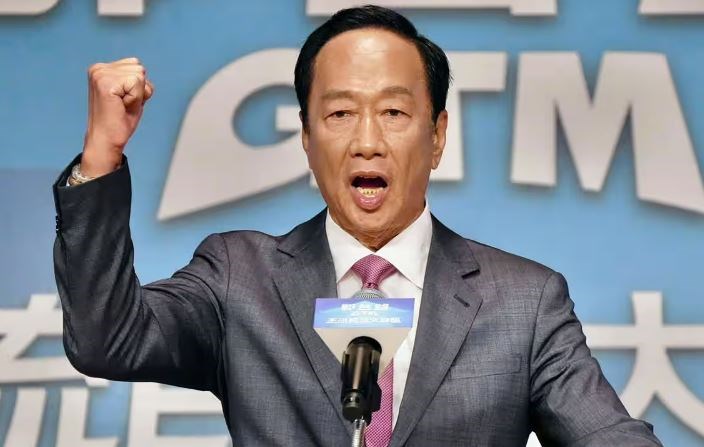Foxconn founder runs independently for Taiwan Presidency: Reports
Terry Gou's candidacy follows his proposal for an opposition party coalition aimed at bolstering the chances of defeating the ruling Democratic Progressive Party (DPP).
-

Terry Gou, the billionaire founder of Foxconn speaking at a press conference on 28 August 2023. (AFP)
Taiwanese billionaire and Foxconn's founder, Terry Gou, has announced his bid for the 2024 Taiwan presidential election as an independent candidate, according to reports from Taiwanese media.
Gou's decision comes after he initially sought the nomination from the opposition party Kuomintang (KMT) in April, but the KMT ultimately nominated Hou Yu-ih, the Mayor of New Taipei City, as their candidate.
Gou's independent candidacy follows his proposal for an opposition party coalition aimed at bolstering the chances of defeating the ruling Democratic Progressive Party (DPP).
The DPP had earlier nominated Taiwanese Vice President Lai Ching-te as its candidate for the upcoming presidential election, scheduled for January 2024.
It is worth noting that Taiwan's incumbent leader, Tsai Ing-wen, is ineligible to run again due to term limits.
Gou, the founder of Foxconn, one of the world's largest tech companies, has been associated with major global corporations like Apple, Amazon, Microsoft, and Xiaomi. He entered politics in 2019 by joining the KMT to contest the 2020 Taiwanese presidential race but left the party after losing the KMT primary.
Read next: Taiwan Presidential candidate lands in New York on way to Paraguay
The big picture
Tensions soared between China and Taiwan in the past few months, reaching their highest in decades, amid warnings from Beijing for both Washington and Taipei against fueling the situation in Southeast Asia.
Taiwan announced plans to increase its security budget in light of rising tensions with Beijing, especially due to the latest developments that drove a wider wedge between China and Taipei.
It also proposed a security budget of $13.7 billion for 2023, marking a 13% year-on-year increase, pending parliamentary approval.
The island will also create a special budget allocated specifically for the acquisition of fighter jets and other aircraft and naval vessels to boost its capabilities in the maritime and aerial arenas.
This comes at a time when the United States is exerting more pressure on its security allies, such as South Korea, the Netherlands, Taiwan, and Japan to abide by broad restrictions on the export of cutting-edge semiconductors to China.
Read next: Explaining Taiwan: The Balance of Relations between the US and China

 3 Min Read
3 Min Read








